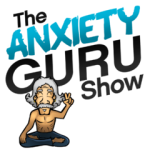
If I walked into a room full of therapists today and told them that Cognitive Behavioral Therapy (CBT) wasn’t all it’s cracked up to be I’m sure I’d get some dirty looks. Yet, it is true. CBT isn’t always effective. I think as a consumer it is important that you understand the good and bad sides of therapy. So today I want to share with you what can make CBT ineffective. Before I do that though I want to make it clear that CBT does help many people. In fact, the reason it is so widely used is because, unlike so many other of forms of therapy, it has been studied and validated over several years. My concern is that because it has garnered such a golden reputation that perhaps some folks aren’t as critical as they should be when considering a course of CBT.
So, let’s review what CBT is. In short, it is a brief form of therapy that focuses on identifying and altering distorted thoughts and behaviors. The therapist acts as a teacher slash coach and walks their client through a series of exercises that are designed to clearly define the problem, develop alternatives to the problem, and encourages the client to develop new skills by completing homework outside of therapy sessions. To learn more about CBT explore this article.
I actually like CBT quite a bit. I think it is a fantastic starting point. I very much like the idea of addressing specific problems within a certain time limit. That said, CBT can be a little shallow. There are also other problems including:
- The effects of CBT often do not last more than two years
- Many therapists are not properly trained to do CBT
- The traditional course of CBT is often too short
- One size fits all solutions don’t fit everyone
- Clients often struggle with completing homework
- CBT does not emphasize the therapeutic alliance
- CBT addresses problems but not the whole person
I’m sure there are other problems associated with this kind of therapy but these were a few of the more important issues. I’m highlighting these points because I’d like for consumers of therapy to go in with their eyes wide open. I want them to know the limitations of CBT and how to counter some of these issues.
So, listen now.
In this episode of The Anxiety Guru Show you’ll hear about:
- Why CBT isn’t always effective
- What you can do to get the most out of any therapy
- Details about my efforts to build a private practice
- Answers to listener emails
- The free anxiety app: Anxiety by Hypnomedia
To listen, you can click the play button below or visit the AG iTunes page.





Paul,
While I generally agree with what you say I want to point out that your reason #2 is not at all related to CBT. If you have a therapist that is not an expert in what you need, you will fail, regardless of what you are trying to accomplish. Also, a good therapist will not let you have 8 sessions and then send you on your way as “cured” via CBT. One other point of contention, if anyone was like me, almost 20 years on meds with no real therapy, and you skip your homework, it is not on your therapist or the style of therapy. It is on the person. I do the homework (above and beyond) because I am desperate to be better. I would hope anyone who feels the way most people with anxiety do would be willing to put in the work to get better, in AND out of the office. It’s our life we are trying to fix, not a college course we are trying to pass.
I have a therapist that helps me with CBT, I have been with him over a year now, going most every week. We work on things constantly, and we have never set a time table for a “fix”.
All that being said, I love your podcasts, and will continue to listen. Congrats on your recent accomplishments and good luck with your new office!
I quite agree with Orlando, You cant say CBT is not effective just because most of the CBT trainers you’ve met arent that Knowledgeable about it. I’m just about to download your Podcast,keep it up.
I just listen to your podcast on cbt. I have had anxiety (panic attacks agoraphobia )for many years and to think 8-10 sessions would point me in recovery mode is ridiculous. I agree a lot depends on the skill of the therapist and not the jargon of the type psychology such as cbt, act, ret. what works works. Unless a person has had a panic attack I don’t think they have clue of how life changing this disorder can be. My wife has no anxiety and she thinks i dwell on the subject to much. She says just change how you think. I would like to see a psychologist like you that has the disorder and can relate to me. Enjoy you podcasts and work you are doing for people with disorder. If I were in California iwould definitely come for counseling. Hey could you email your email address for a question. I can’t get it on your podcast– you talk too fast. I’m from the south
Hey Everyone, thanks for the comments! Just to clarify though, I certainly did not say that CBT does not work. I said it doesn’t always work. Big difference =). Also, the 8-10 session model is based on what most insurance carriers will pay for. If you pay out of pocket you could keep going for years and years. Realistically though, CBT was not designed as a long-term therapy. In the end, CBT is very helpful to many people, as I said, but it is important to note its limitations. That is all.
Paul,
Totally understand what you mean. I guess I just wanted to point out that it was working for me. Another thing is even though my therapist says I am doing CBT, I have noticed that we do Mindfullness in there as well, I think there is some good overlap with a lot of these therapies. Keep up the great work, one thing I do wish is that my therapist could understand what it is to feel a panic attack, but at the same time I wouldn’t wish one on anyone. Also, I never thought about the insurance angle. I guess I am blessed with a great healthcare plan from my job….which is one of my main sources of anxiety. I wonder if they did that on purpose. LOL
Have a great week!
AG Family,
How is everyone? I hope you are all doing well, or as good as can be. So I’ve been waiting to write on this very subject for while now. Reason being I started doing CBT today. This is the fourth time I’m doing it (and the third time it’s one-on-one). Of course, since it was the first session, it was all about getting to know one another and seeing if we were going to be able to work with one another. Glad to say we’re both looking forward to working with one another for the coming months.
Anyway, I’m really stoked about this session because I’m coming in with a different mindset. The first time I did it, it was in a group setting. Although the therapist was really good, and I wanted to see what CBT was all about, I had to share the time with 7 other folks. I quickly realized I needed to do CBT one-on-one to really get the full effect of CBT. I did learn alot, but I chose not to fully take on the “CBT experience”. Yup, I barely did any of the homework (something I regret today but oh well). The second and third CBT sessions I had, it was one on one sessions (YEAH BUDDY), but I came in with the wrong attitude. What was my attitude? During both sessions, I was going through relapses, and I was feeling like crap. All I wanted was to do whatever it took to feel better no matter what it took (meds, CBT, therapy, whatever). I reacted, got “desperate”, yet I wasn’t willing to put in the work. I learned alot, and it did help me, but to an extent.I will say it opened up my eyes to the reality that this process was going to be a long one.
Fast forward to a few months back, and I realized I wanted to do another CBT session. No, I’m not feeling like crap. I’m actually in a good place right now. But I wanted to learn more about CBT, integrate it more into my life (as well as improve my handling of anxiety itself), and then use it to help others. So Instead of reacting, I’m just being proactive about my life as whole. I still have ways to go with my anxiety, but I think I’m going into these next few months with a better mindset as well as with an open mind.
I will let everyone know how it goes from time to time on the forum (so make sure to visit when you get a chance). I hope all is well with everyone. As Paul says at the end of all of his podcasts, no matter what, you’re going to be okay (hard to believe it at first, yet so true if you stick a with “a plan”). Cheers.
My CBT therapist “fired” me. Admittedly I was not always on the homework, but for most of our sessions over a year we mostly just sat around and bullshitted. I think the fact that he has ADHD and I have ADD was a problem, but I did go into a major depressive funk after I was “fired”. I’m still skeptical of therapists a decade later.
Hey Craig,
I’m sorry to hear about your experience. I wonder if your therapist explained why terminating was a good way forward especially because it sounds like perhaps you weren’t ready to be done with therapy. If you found therapy helpful in the past I hope that you don’t give up on therapy. It can be helpful especially for issues related to anxiety.
I’m so glad to have come across this podcast. CBT definitely did *not* work for me. Unfortunately, where I live it is about the only show in town if you want your therapy covered. I frequently get suicidal, my doctor will send me off for 6 sessions of therapy, and it’s always, “Let us teach you CBT,” if I tell them it doesn’t help me, then I’m just a problem patient. Now I avoid talking to doctors and therapists because…who likes being criticized?
I know it’s an effective strategy for many people. I’ve studied it in school. I’ve read several books on it. I’ve even taught other people techniques from CBT. It just doesn’t work for me.